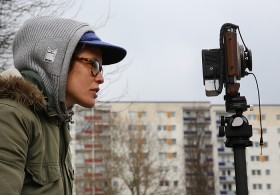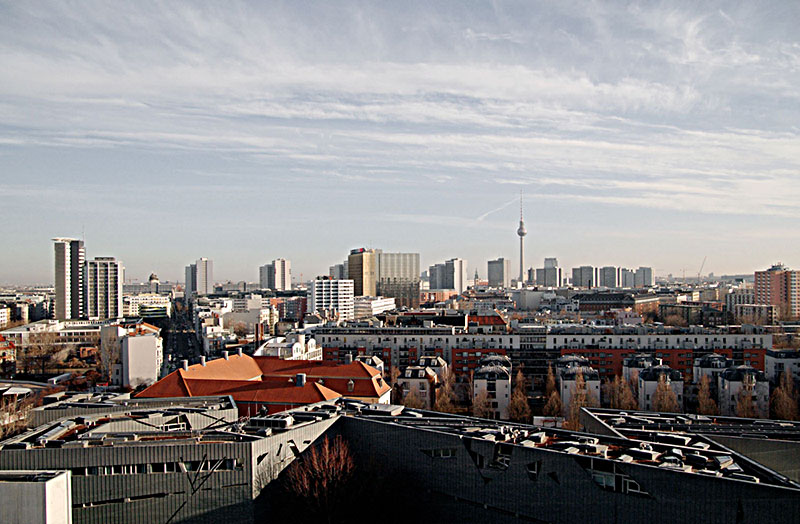
The author © David Ranan
For his book, “The shadows of the past are still long: Young Jews on their lives in Germany,” culture researcher, David Ranan, conducted interviews with Jews between 20-40 whose grandparents survived the Holocaust and then settled in Germany after the war. The London-based author will present his book at the Academy of the Jewish Museum Berlin on 7 July 2015, as part of the “New German Stories” series. In advance, we asked him three questions.
Julia Jürgens: Mr. Ranan, one question you asked your interviewees deals with the “packed luggage” the first and second generation seem to have at the ready, an expression of their inner conflict between being able to safely stay or having to again flee. Is there still this conflict within the third generation or how else would you describe its sense of belonging to Germany? → continue reading

Hadas Tapouchi © Katja Täubert
History cannot be captured in a single form. Not in brass, not in metal. That is what Hadas Tapouchi says. The Berlin-based Israeli artist believes that monuments and inscriptions miss the actual sense of commemoration. This type of remembrance would be an inevitable path towards forgetting.
Undoubtedly, Hadas works against forgetting. Upon our first meeting at her Tel Aviv apartment about four years ago, the artist’s rendered self-portrait in prisoner’s garb immediately jumped out at me. It was one of the precursors to her project, “The Third Generation“. A countless number of portraits since followed – portraits of mutual friends, the author himself, as well as young men and women between Berlin, Tel Aviv and Ramallah. → continue reading
More and more young Israelis are moving to Berlin, bustling between Berghain and meshuggah parties, Neukölln and Prenzlauer Berg. The media can’t stop talking about them, but the vogue isn’t only due to the 50-years of diplomatic ties between Germany and Israel. There are in fact not a few young people moving to the German capital with innovative ideas and youthful brio, dabbling in the start-up or art scenes, running cafes, organizing parties.

Berlin’s skyline with a view of the Jewish Museum © Michele Nastasi
So what does that life really look like?
Last year I met Noga at a Berlin gallery and we quickly started talking about family, Berlin, and Israel. In September of 2010, Noga and her husband Zeevi moved to Berlin with just two suitcases – not to enjoy the party scene here for awhile, but to stay. I met with both of them to talk about their life in Berlin.
Jihan Radjai: Why did you decide to move to Berlin? → continue reading


